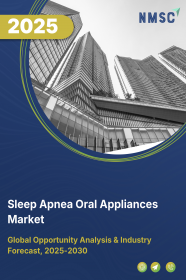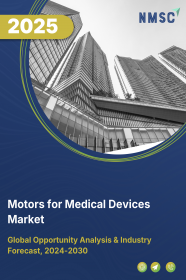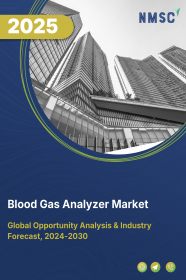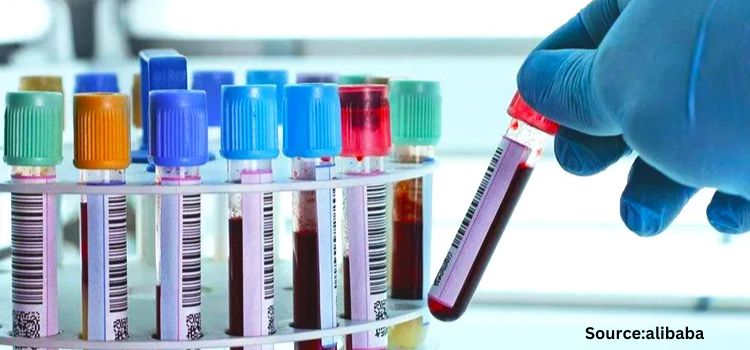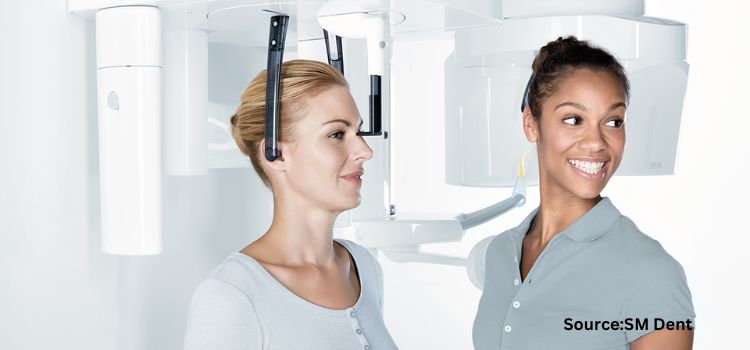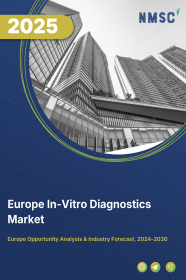
Europe In-Vitro Diagnostics Market by Type (Reagents, Instruments, and Software & Services), by Technique (Immunodiagnostics, Hematology, Molecular Diagnostics, Tissue Diagnostics, Clinical Chemistry, and Other IVD Techniques), by Application (Infectious Diseases, Cancer, Cardiac Diseases, Immune System Disorders, Nephrological Diseases, Gastrointestinal Diseases, and Others) – Opportunity Analysis and Industry Forecast, 2024–2030
Industry: Healthcare | Publish Date: 15-Feb-2025 | No of Pages: 231 | No. of Tables: 153 | No. of Figures: 118 | Format: PDF | Report Code : HC2343
Europe In-Vitro Diagnostics Market Overview
The Europe In-Vitro Diagnostics Market size was valued at USD 14.89 billion in 2023, and is predicted to reach USD 18.67 billion by 2030, at a CAGR of 2.9% from 2024 to 2030. In-vitro diagnostics (IVD) refers to a wide range of medical tests conducted on samples of bodily fluids, tissues, or cells outside of the body to diagnose diseases, monitor therapy, and assess overall health conditions. These tests are performed in laboratory settings using various techniques and technologies, including immunoassays, molecular diagnostics, clinical chemistry, hematology, and microbiology.
IVD tests enable early detection of diseases, allowing for timely intervention and treatment initiation. By providing rapid and accurate results, these tests facilitate personalized medicine, guiding tailored treatment approaches based on individual patient characteristics. Also, immunoassay experiments provide valuable insights into biological systems, enabling scientists and researchers to make significant contributions to fields such as medicine, biotechnology, and pharmacology. They serve as essential tools for understanding fundamental biological processes and developing innovative solutions to address health challenges.
Growing Aging Population in Europe Drives Significant Market Growth
Europe's aging demographic profile amplifies the need for immunodiagnostic innovations, as age-related ailments become more prevalent. Technological advancements and the advent of sophisticated diagnostic techniques are revolutionizing the landscape, enhancing the accuracy and accessibility of diagnostic tests. This, coupled with supportive governmental policies aimed at enhancing healthcare infrastructure and accessibility, creates a favourable environment for in-vitro diagnostics market expansion in the region.
Adoption of Strategic Investments and Collaborations Boost the Market Growth
The strategic investments in research and development, alongside collaborative efforts within the industry, propel innovation and drive the development of cutting-edge diagnostic tools. Adopting personalized medicine principles and widespread use of point-of-care testing additionally stimulate the Europe in-vitro diagnostics market growth, heralding a significant change in healthcare provision throughout the region.
High Research, Development, and Regulatory Approval Costs Hinder Vitro Diagnostics Market Growth
High costs associated with research, development, and regulatory approval are significant factors restraining the in-vitro diagnostics market growth in Europe. Operating within this sector necessitates significant financial investment for companies to navigate the complex landscape of research and development.
This investment often encompasses extensive clinical trials, laboratory testing, and product refinement to guarantee accuracy and reliability. Additionally, obtaining regulatory approvals from agencies such as the FDA requires strict adherence to stringent standards, further compounding the financial burden. This financial constraint can discourage potential adopters from market expansion.
Introduction of Point-of-Care Testing Solutions in IVD Creates Market Opportunity
Point-of-care testing (POCT) is poised to be a significant driver of growth in the Europe IVD market in the forthcoming years. POCT serves as a valuable complement to laboratory testing, especially in situations where immediate results are crucial, such as emergency departments, ambulances, and remote healthcare settings.
With POCT technologies offering rapid tests for infectious diseases, cardiac markers, glucose monitoring, pregnancy testing, and more, healthcare providers can quickly assess patients' conditions and make timely treatment decisions.
By integrating POCT with traditional IVD, healthcare providers can enhance their diagnostic capabilities, delivering more efficient and patient-centered care. This integration streamlines workflows, allowing for faster diagnosis and treatment initiation, ultimately leading to improved patient outcomes.
Germany Dominates the Europe In-Vitro Diagnostics Market Share
The substantial healthcare expenditure is significant in propelling the growth of the in-vitro diagnostics market in this region. Germany allocates substantial resources towards improving healthcare infrastructure, enhancing medical facilities, and expanding access to healthcare services, including diagnostic testing.
Germany's health expenditure per capita stands at USD 8011, surpassing the OECD average of USD 4986. This accounts for 12.7% of the country's GDP, notably higher than the OECD average of 9.2%. This increased investment enables healthcare facilities to adopt innovative in-vitro diagnostics products and platforms offering more accurate, efficient, and timely diagnostic capabilities.
Finland to Witness Substantial Growth in the Market
The increasing incidence of chronic diseases is boosting the need for advanced diagnostic techniques, thereby propelling the growth of the Europe in-vitro diagnostics market trends. According to European Observatory on Health System and Policies, in 2021, the primary causes of mortality in Finland were circulatory diseases, specifically ischemic heart diseases and stroke, followed by cancer, Alzheimer’s and other dementias.
Collectively, these ailments constituted approximately three-quarters of all reported deaths in Finland. This rising incidence of chronic diseases and mortality is boosting the demand for advanced diagnostic techniques in Finland's healthcare landscape to detect and manage these conditions effectively, the in-vitro diagnostics market is positioned to play a pivotal role in improving patient outcomes and reducing the burden of chronic diseases in Finland.
Competitive Landscape
The promising players operating in the Europe in-vitro diagnostics industry include Roche Holding AG, Abbott Laboratories, Thermo Fisher Scientific Inc, Danaher Corporation, Becton, Dickinson and Company, Siemens Healthineers AG, bioMérieux SA, Sysmex Corporation, QIAGEN N.V., and Bio-Rad Laboratories, Inc., and others.
Europe In-Vitro Diagnostics Market Key Segments
By Type
-
Reagents
-
Instruments
-
Software & Services
By Technique
-
Immunodiagnostics
-
Enzyme-Linked Immunosorbent Assay (ELISA)
-
Rapid Tests
-
Chemiluminescence Immunoassay (CLIA)
-
Enzyme-linked Immunosorbent spot (ELISpot)
-
Radioimmunoassay (RIA)
-
Western Blot
-
-
Hematology
-
Molecular Diagnostics
-
PCR
-
INAAT
-
Hybridization
-
DNA diagnostics
-
Microarray
-
Other Molecular Diagnostics
-
-
Tissue Diagnostics
-
Clinical Chemistry
-
Basic Metabolic Panel
-
Liver Panel
-
Renal Profile
-
Lipid Profile
-
Thyroid Function Panel
-
Electrolyte Panel
-
Speciality Chemicals
-
-
Other IVD Techniques
By Application
-
Infectious Diseases
-
Cancer
-
Cardiac Diseases
-
Immune System Disorders
-
Nephrological Diseases
-
Gastrointestinal Diseases
-
Others
By End User
-
Stand Alone Laboratory
-
Hospitals
-
Academics and Medical Schools
-
Point of Care Testing
-
Other End Users
By Country
-
The UK
-
Germany
-
France
-
Italy
-
Spain
-
Denmark
-
Netherlands
-
Finland
-
Sweden
-
Norway
-
Russia
-
Rest of Europe
REPORT SCOPE AND SEGMENTATION:
|
Parameters |
Details |
|
Market Size Value in 2023 |
USD 14.89 billion |
|
Revenue Forecast in 2030 |
USD 18.67 billion |
|
Value Growth Rate |
CAGR of 2.9% from 2024 to 2030 |
|
Analysis Period |
2023–2030 |
|
Base Year Considered |
2023 |
|
Forecast Period |
2024–2030 |
|
Market Size Estimation |
Billion (USD) |
|
Growth Factors |
|
|
Companies Profiled |
10 |
|
Countries Covered |
11 |
|
Customization Scope |
Free customization (equivalent up to 80 working hours of analysts) after purchase. Addition or alteration to country, regional, and segment scope. |
|
Pricing and Purchase Options |
Avail customized purchase options to meet your exact research needs. |
KEY PLAYERS
-
Roche Holding AG
-
Abbott Laboratories
-
Thermo Fisher Scientific Inc.
-
Danaher Corporation
-
Becton, Dickinson and Company
-
Siemens Healthineers AG
-
bioMérieux SA
-
Sysmex Corporation
-
QIAGEN N.V.
-
Bio-Rad Laboratories, Inc.

















 Speak to Our Analyst
Speak to Our Analyst



